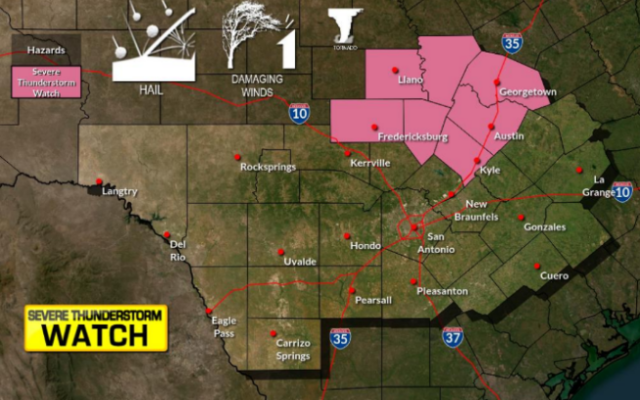Castro blames state officials for coronavirus decisions, says pandemic proves need for universal healthcare
BEXAR COUNTY, Tex. (KTSA News) — Julian Castro said there isn’t much Texas state officials are doing right during the coronavirus pandemic.
The former San Antonio mayor appeared on ABC News Live Monday afternoon.
“The governor of Texas reopened the state too early and when he reopened, there wasn’t sufficient among of testing or contact-tracing, which is what scientific experts tell us you need to reopen safely,” Castro told ABC’s Linsey Davis. “And on top of that, he hasn’t allowed local communities to tailor their own safety precautions.”
He did not elaborate on what precautions local communities were being prevented from taken during the interview.
Texas has seen its positive case and fatality numbers moderate recently.


Castro was also not pleased with how state officials are handling the start of a new school year.
“I don’t feel comfortable with my kids going to school in-person,” he explained to ABC News.
The biggest issue the former HUD secretary has was “mandating that schools reopen and within the next few weeks. Likely, that will be in-person.”
A theme Castro had during his interview was that state officials are not letting local officials make decisions. That continued on the topic of schools.
“He’s [Texas Governor Greg Abbott] not allowing local communities and local school districts to make that decision,” Castro stated. “That’s a mistake.”
That statement by the former mayor is not completely correct.
The following is what Governor Greg Abbott, Lieutenant Governor Dan Patrick, Speaker Dennis Bonnen, Senate Education Chairman Larry Taylor, and House Education Chairman Dan Huberty released as a statement on the matter Friday:
“The top priority is protecting the safety and health of students, teachers, staff, and families. To achieve that goal, the TEA provided local school boards the flexibility they need to open schools in ways that ensure public safety while also providing the best education options for students during this challenging school year.
“The TEA guidance applies long-standing state law and Executive Orders to conclude that the authority to make decisions about when and how schools safely open rests with the constitutionally and statutorily established local school boards.
“The authority to decide when the school year will begin lies with local school boards. They can choose dates in August, September, or even later. But, whenever the local school board chooses to open, the board must comply with the requirement to provide the necessary number of days and hours of instruction for students.
“The authority to decide how schools will safely open this year, again, lies with local school boards. It can be with students in schools, it can be through remote learning, or a combination of the two. In making that decision, school boards have the ability to base their decisions on advice and recommendations by local public health authorities but are not bound by those recommendations.
“As the TEA previously announced, school boards have up to a 4-week back to school transition period during which they can offer a solely remote instructional setting if that is deemed needed for the health and safety of students, teachers, staff and parents. After 4 weeks, the school district can extend the transition period up to another 4 weeks with a vote of the school board and receiving a waiver. If any school district believes they need an extension beyond 8 weeks due to COVID-19 related issues, the TEA will review that request on a case-by-case basis.”
What the state government did limit was the ability for local health districts to decide whether to permit in-person instruction. The state said that power rests solely with local school districts, which can consult with local health officials to determine what is best for their situation.
Castro said the next coronavirus relief package by Congress needs to include a few things.
Among them, a moratorium on evictions and more help who have been working in specific industries during the pandemic.
“What we need are things like hazard pay for front-line workers,” Castro said. He suggested people in fields like medical and retail should be among the beneficiaries.
But the former presidential candidate said there are some bigger efforts that need to be pushed.
“In the long-term, this has really shown us that we need universal healthcare in this country,” asserted Castro. He did not elaborate why.
You Might Also Like



